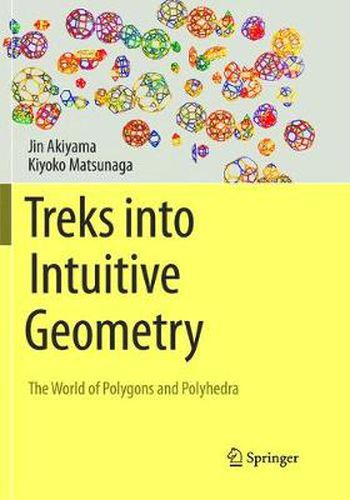Readings Newsletter
Become a Readings Member to make your shopping experience even easier.
Sign in or sign up for free!
You’re not far away from qualifying for FREE standard shipping within Australia
You’ve qualified for FREE standard shipping within Australia
The cart is loading…






This title is printed to order. This book may have been self-published. If so, we cannot guarantee the quality of the content. In the main most books will have gone through the editing process however some may not. We therefore suggest that you be aware of this before ordering this book. If in doubt check either the author or publisher’s details as we are unable to accept any returns unless they are faulty. Please contact us if you have any questions.
This book is written in a style that uncovers the mathematical theories buried in our everyday lives such as examples from patterns that appear in nature, art, and traditional crafts, and in mathematical mechanisms in techniques used by architects. The authors believe that through dialogues between students and mathematicians, readers may discover the processes by which the founders of the theories came to their various conclusions their trials, errors, tribulations, and triumphs. The goal is for readers to refine their mathematical sense of how to find good questions and how to grapple with these problems. Another aim is to provide enjoyment in the process of applying mathematical rules to beautiful art and design by examples that highlight the wonders and mysteries from our daily lives. To fulfill these aims, this book deals with the latest unique and beautiful results in polygons and polyhedra and the dynamism of geometrical research history that can be found around us. The term intuitive geometry was coined by Laszlo Fejes Toth to refer to the kind of geometry which, in Hilbert’s words, can be explained to and appeal to the man on the street. This book allows people to enjoy intuitive geometry informally and instinctively. It does not require more than a high school level of knowledge but calls for a sense of wonder, intuition, and mathematical maturity.
$9.00 standard shipping within Australia
FREE standard shipping within Australia for orders over $100.00
Express & International shipping calculated at checkout
This title is printed to order. This book may have been self-published. If so, we cannot guarantee the quality of the content. In the main most books will have gone through the editing process however some may not. We therefore suggest that you be aware of this before ordering this book. If in doubt check either the author or publisher’s details as we are unable to accept any returns unless they are faulty. Please contact us if you have any questions.
This book is written in a style that uncovers the mathematical theories buried in our everyday lives such as examples from patterns that appear in nature, art, and traditional crafts, and in mathematical mechanisms in techniques used by architects. The authors believe that through dialogues between students and mathematicians, readers may discover the processes by which the founders of the theories came to their various conclusions their trials, errors, tribulations, and triumphs. The goal is for readers to refine their mathematical sense of how to find good questions and how to grapple with these problems. Another aim is to provide enjoyment in the process of applying mathematical rules to beautiful art and design by examples that highlight the wonders and mysteries from our daily lives. To fulfill these aims, this book deals with the latest unique and beautiful results in polygons and polyhedra and the dynamism of geometrical research history that can be found around us. The term intuitive geometry was coined by Laszlo Fejes Toth to refer to the kind of geometry which, in Hilbert’s words, can be explained to and appeal to the man on the street. This book allows people to enjoy intuitive geometry informally and instinctively. It does not require more than a high school level of knowledge but calls for a sense of wonder, intuition, and mathematical maturity.